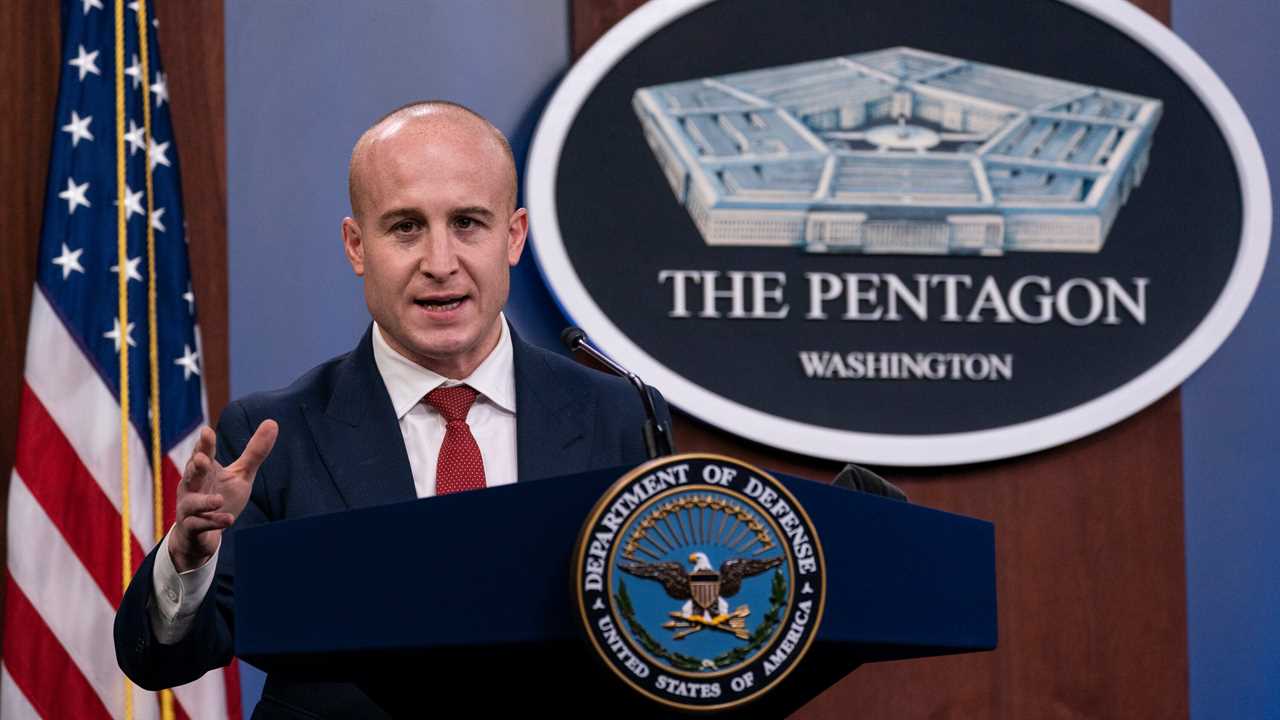
Former Representative Max Rose, Democrat of New York, finished a six-month stint on Monday as a senior adviser on Covid-19 to the secretary of defense, Lloyd J. Austin III.
Outside of its attempt to vaccinate millions of service members, their families and others affiliated with the department, the military helped set up various mass vaccination sites around the United States, led by the National Guard, to vaccinate some 20 million civilians. As demand changed, the Biden administration began shifting away from using high-volume mass vaccination sites — the last of the federally operated ones closed in late June — to focus on more targeted efforts to reach those who had not yet gotten shots.
The military has been struggling to fully vaccinate the majority of troops across all service branches. While the Army and Navy are outpacing the civilian population in vaccine uptake, the Air Force and the Marine Corps have faced greater challenges.
Roughly 70 percent of active duty servicemen and women have had at least one dose, but military leaders, who view vaccines as part of what makes it force ready for deployment, are desperate to get shot in all arms. President Biden is legally able to force a vaccine mandate specifically on the military even though vaccines remain under an emergency use order, but so far has declined to use that power.
Mr. Rose shared a few reflections edited here for length and clarity.
How was Day 1?
We had 11 executive orders drop that first day. We had the President’s bio defense Covid-19 strategy. Then when Secretary Austin came, within one hour of him being, you know, boots on the ground at the Pentagon, he holds a meeting on Covid with his top leadership there.
How are those in the military and those in civilian society who decline vaccines alike or different?
The active duty service members, over 1.3 million service members, over 80 percent of whom are under the age of 35. So exactly that target demographic that right now, each and every day, the nation as a whole is working toward to vaccinate and in some instance struggling to do so.
It’s a misnomer that this is a black-and-white situation, that it’s either ‘I love the vaccine, or I detest it and I think it will I’ll grow a tail if I take it.’ There’s a whole other group of people who don’t believe any of that misinformation, necessarily, but they’re also not feeling any sense of urgency in and around getting it. And for them there’s a significant benefit to a real focus on encouragement and accessibility.
Tools for that?
We’ve seen unbelievably creative things happening, whether it is units giving four-day leave to their units when they eclipse a certain vaccination rate, to unit barbecue days that include vaccinations, to a whole host of other measures taking better focus in and around encouragement and accessibility.
Any the private sector can emulate?
You get time off to get your vaccine and I get that, but there’s nothing stopping the private sector from also giving additional vacation days. And it’s that type of encouragement that I think is actually a really significant option.
What else is the problem?
You also have other elected officials who are consistently aggressively pushing that misinformation, using the military as a prop, at times as well, and I guarantee you, if Donald Trump had won re-election, those exact same elected officials would be the loudest proponent of these vaccines, that they would be on the corner with Pfizer, Moderna, J. & J., T-shirts and pompoms, urging people to go get their vaccination shot. It’s illustrative of this horrible place that our politics is in right now.
Any other role the military played?
What we have done in partnership with H.H.S. to help bolster the private sector.
I mean you see the announcements, day in and day out of the Department of Defense awards contract to expand nitrile glove capacity, the next week, the Department of Defense announces a contract to build out testing centers, the Department of Defense announces another contract in and around therapeutics. Very rarely does a week go by when we haven’t seen the Department of Defense make a very significant contracting announcement that relates entirely to the nation’s private sector capacity to be resilient in the face of this pandemic and future pandemics.
Talking a bit more about those mass vaccine site which became so emblematic of the effort:
There was something absolutely profound, putting people at ease of seeing service members, they’re there in a moment of just the greatest casualty-producing event in the history of this country.






